Daryl Johns is here to have a good time. The Los Angeles-based musician, whose roots are in New Jersey, has lived and breathed music for all of his life, born to jazz musician parents and spending much of his earlier years as an acclaimed upright bassist. Playing into that background supporting role saw him amass quite the wildly impressive portfolio, working with the likes of Pat Metheny, Immanuel Wilkins, and Macy Gray, to name a few.
Eventually, Johns grew out of being hidden in the background. Lately, he’s garnered more attention as a solo artist making music that’s a hodgepodge of ‘80s new wave and power pop, indie rock, and hypnagogic pop. Yet despite his jazz roots, he’s always loved that sound as a kid — a part of his heart was always in the indie world too. Obsessing over L.A.’s range of indie talents partly catalyzed his transformation, but his time playing with The Lemon Twigs perpetuated it, leading him to meet his indie idol Mac DeMarco and be taken under his wing by entering his record label and current live band. Johns’s self-titled debut, which was brewing for years, is now bestowed upon the world and shows all sides of him: jazz chops and an appreciation for anthemic ‘80s pop are on full display, but his earnestness in this combination cements this throwback sound as truly his own.
I spoke with Johns, who gave me an extensive rundown on his debut collection of surreal, sugar-coated pop anthems, of which much time and effort were put into. He discussed at length how he properly entered the indie world after being so engrossed in jazz, meeting Mac DeMarco and other indie artists, and the plans he has to take his future music to the next level with proper singers.
You have a very prolific jazz background. Listening to your debut seems like it’s a far cry from all of that. Where did the shift to making ‘80s new wave-y power pop come from?
Daryl Johns: First of all, I’ve always liked all kinds of music. My parents are jazz musicians. I’ve played jazz from a very young age. I was good at jazz before I even really liked it, but I always loved The Police and that wasn’t anything new. I started pursuing other music when I stepped back and was like, “Why am I just playing jazz?” It’s kinda complex to answer, ‘cause there was… I can give you a history lesson. Like, you know Brad Mehldau?
Oh yeah.
DJ: Jazz piano player, maybe you know. There’s videos of him playing with Elliot Smith. He’s covered Radiohead. What I’m trying to say is, at least since the ‘90s, there’s always been a flirtation with indie music from jazz musicians. Maybe in the ‘70s, it was them flirting with pop, disco, or hip hop, like Robert Glasper flirting with hip hop. Some flirt more than others. In Brad Mehldau’s case, it’s just a jazz trio covering a Radiohead song in a jazz format and style. There’s a distinction there. Growing up in the jazz world with my parents and in the jazz camp world as a highschooler, I was always hip to these jazz people — that sounds so dumb, “jazz people” — flirting with different genres, you know? There’s some jazz people that would never cross over, they’re more like bebop.
As I was in high school doing all these camps, older jazz kids would show me The Smiths, Flying Lotus, Baths, and Joy Division. There was one friend who went to LACHSA, which is L.A. County High School for Arts. I connected with a lot of L.A. jazz kids there who were a little older than me because they appreciated the history of bebop, or Lennie Tristano, that old school ‘50s stuff. At the same time, they were in tune with the beatnik music of the time, 10 years ago, which is hipster indie rock or indie music. Weirdly, there is a tie between the bebop, beatnik culture in L.A. and then the Lennie Tristano school of beatnik, cool jazz.
I was a hipster jazz musician, a big part of it was just liking alternative stuff — just your average, stock textbook hipster kit 101. I did my rite of passage where I got into The Velvet Underground, The Smiths, all of that. By the time I was in college, I was playing lots of gigs as an upright bassist, but I was eventually sick of just being a bass player. I wanted to sing, I wanted to solo, which turned into making songs. I was 18 when my roommate showed me Mac DeMarco in 2014 — that was when SALAD DAYS just came out. I dug it but it didn’t really click until I saw the PEPPERONI PLAYBOY documentary where it went into his whole process and the world around it. So I got into Mac, then I remember hearing “Round and Round” by Ariel Pink while I was high as fuck on weed and my roommate and his friend were hanging out. I remember the next day being like, “The fuck, was that a dream, or was that a real song?” It blew my mind. It sounded like some ‘70s shit.
So there was the mix of those two people, and I was hating being an upright bass player. You do it for work, for no return, and you can’t hear it. A bass player is a supporting role, so why would I support something I don’t like? I was just like, “Why don’t I just make the music and then support that?” There was a point, experimenting in college and seeing Mac’s process, where something clicked that I solely didn’t want to be a bass player anymore, I wanted to be an indie rocker who records on tape.
How did the recording start?
DJ: I was already writing jazz tunes that had a bit of a rock, pop element to it, which is what “Gabriel” was. The style was me trying to be jazz but still pop. Like, I love ‘80s, *imitates guitar chords* I like that thing, but I like the pop notes and harmony. I wasn’t like, “Fuck jazz!” On the album, some songs are kind of proggy and poppy and there’s some that are straight-up pop. I got into it in freshman year, but I didn’t start with recording, it started with a band. Then I got a tape machine, which was during college, and it was all colliding. Now, there’s some people in L.A. who don’t even know I play bass, so the tables turned for what I’m appreciated for. But like, that’s how it started.
I totally get that. You had to carve out your own space to make that happen. It’s like you’re showing all facets of yourself: In the album, you have great proggy, sparkly instrumentals, but also that ‘80s pop sensibility. On your Instagram, you had a clip of “Golden Showers” with Peter Gabriel’s voice over it — you can hear that combination come through. How early, then, did some of the songs appear?
DJ: For context, “Golden Showers,” that wasn’t a single, but you heard the loop I made of it. That song was recorded in 2019, but it was written in 2016 for a composition class. They were just, like, “Write a song with half-diminished chords.” And I was, like, “Fuck half-diminished chords,” so I started the song with a half-diminished chord just to get it out of the way.
“Whoops,” the last single, I released a demo on Soundcloud in 2016, but it was written in 2015. “Whoops” was one of the first, probably the third song I ever wrote. It was the one that sparked the album in the beginning, it became like its theme song. It has modulations, but it’s still pop — it’s like ADD and over-the-top. There’s other songs like “I’m So Serious,” the first single I put out, that was recorded in 2019, written in 2018, and finished like a year ago. A lot of these songs were worked on a lot then put aside for years, and then worked on again.
You used to release your music out as Sweet Joseph. What compelled you to release music under your own name instead of an alias?
DJ: Well, it has nothing to do with the music. The music is the same. It’s not like I made “Daryl Johns” and it’s, like, new. It’s because Sweet Joseph felt a little outdated to me. A little twinky and it probably made more sense when I was 19. Now it feels a little bit wimpy. Like, I’m 28 years old… Another part is that my girlfriend at the time, she was like, “Why is it called ‘Sweet Joseph?’ That’s so lame.” Part of it was the insecurity of that. Beyond it outgrowing me, I think it was a unique name, but I think in 2016 it fit aesthetically with what people were naming their things back then. It just feels like it’s from a bygone era.
Another part is, I think in this day and age, everyone has a weird name. When you use your own name, it kind of puts you in a different category. It’s a little more old school, in the sense like you’re an author. You use your real name and it’s not quirky, it’s not like some all caps weird name or something. It makes it less playful, but it’s almost like Lou Reed — you are the person who made this. It’s not, like, a character. I think it’s kind of cool and refreshing to just use your name.
Your artistic identity and the press releases give this image that you don’t take yourself too seriously, but there is a lot of effort that’s gone into the music. Like you said before, the shift to doing your own thing was very conscious, you know? There’s an interesting dichotomy there.
DJ: About what you said where it’s not taking itself seriously, on a personal level, what was put into the music — the amount of effort and overwork… I don’t think there’s been an album I’ve been more stressed about than this. That’s a bold statement, but I think there was a lot of unnecessary stress. It was pretty unbelievable how hopeless I felt at times, so that’s why it took so long, but maybe I needed to go through a little Hell to come out the other side. But then the music itself has never been serious, it’s supposed to be fun. It’s supposed to be euphoric, very druglike, very stimulating. It’s not supposed to be flaunting all the technical or chordal movements — all those movements are for the sake of joy, it’s an addiction for me. It was almost like making a circus or a carnival, which is very much for fun, but it was the hardest carnival to make.
I still wanted to make something unique. If I wanted to just straight up make money, I would just go into the studio with a producer and make pop pops. So there’s obviously an element of something else, and with the covers and music videos, there’s a goofiness to them. I’m a very goofy, playful person, but I’m also very heady. So I have all these songs I’ve worked so hard on, the live show or the music videos, and it’s like a celebration and relief from the process. It’s kind of, like, “Okay guys, let’s play this live show. Let’s just get drunk and just be goofy.” There has to be some sort of release. On the other side of it, rock musicians play live so they can make records, but jazz musicians make the records so they can play live.
That last point is interesting to me because even with the playful element there, your record is definitely an interesting hodgepodge of those genres. I also have to ask about the elephant in the room, which is getting support from Mac DeMarco’s record label. I discovered your music when “Gabriel” first dropped on there. How did that come about?
DJ: It’s surreal because in the jazz world, we don’t use the word “drop” or “label signing” in such a rock ‘n’ roll sense. I do now, but to hear someone say that towards me is so trippy because I don’t think there’s always singles in jazz. Like imagine “John Coltrane’s single just dropped.” It’s more like classical music, so the fact that I’m in this indie circuit hearing these terms in real time is tripping me out because it’s such a relatively foreign format in a sense. So, you’re asking how I met Mac or something?
Yeah, go for it.
DJ: So, I was always a jazz person and then I got obsessed with Mac and Ariel and all these indie people. I was, like, “There’s no way I’ll ever meet these people.” I knew they were in Brooklyn, but I just didn’t know anyone — now I do, I’ve learnt how interconnected that world is, which trips me out. But I didn’t know a single person. I was doing this indie stuff on the road with two friends, then I remember my friend Dion Kerr who was in a grad program told me his older brother Andrew is on Captured Tracks, and I was like, “What?!?” Captured Tracks, as you probably know, is the label Mac used to be on. That was the first, “What, indie people in my sphere?,” as little as it was.
Then, the Lemon Twigs put something online that they were looking for a new drummer. I sent an audition tape and they didn’t respond, but then a year later I was playing in a band called Onyx Collective — an experimental jazz band, everything goes. One day they were like, “Come to this gig, the Lemon Twigs are going to come through, we talked about you with them.” I lived in New Jersey and I was in Chinatown, but 10 minutes before the gig the next day, I’m on my computer and look at the clock and I’m like, “Fuck, I missed the gig. I was supposed to play.” They didn’t care too much because it was just at a small Mexican restaurant, but the Lemon Twigs were jamming with them. I was like, “Fuck! My second opportunity, I’m never gonna get into the indie scene!” But then a week later, the Lemon Twigs emailed me looking for a bass player. I auditioned and I got the gig. It was cool, now I’m a ‘70s enthusiast.
They’re hooked up with Foxygen and Mac and stuff. And this is where I finally met Mac. We played at L.A.’s El Rey Theater in 2019. I noticed on the side was Mac, Kira, and Mike Collins from Drugdealer, and I was just like, “Holy shit, Mac is here.” It’s weird and strange when you see someone on the internet for so long and you see them for the first time in real life. It’s a very unnatural thing, you’re looking at the scale of their head and you’re like, “Woah.” It’s really crazy. It’s like showing a monkey an iPhone for the first time.
I completely get that. I’ve met some of my favorite artists a couple times at concerts, and even doing interviews, it’s like, their music has been in my ears for years and now they’re here in front of me. You just get starstruck, like, it’s weird! Nothing prepares you for that.
DJ: It’s weird, yeah. So then, I saw him in the crowd and I went backstage and I was like, “Guys, Mac is here.” They didn’t want to tell me because they didn’t want me to freak out for the gig. We played the gig, and I also noticed Tim Heidecker and John C. Riley up on the balcony. That was the most starstruck I ever was. Anyway, we played the gig, I smoked a joint on stage and someone gave me a puff, and I hid in the dressing room afterwards because I was way too high. Then Brian D’Addario [of the Lemon Twigs] came back, he was like, “Daryl, come out, Mac is so drunk it doesn’t matter.” And I met him and he gave me a sweaty hug. Now the reason why I play with Mac is… You know Domi and JD Beck?
Yes! I know them.
DJ: I met them through the internet and mutual respect, then I hung out with them a couple times and they had heard my music. They knew I was into Mac and they started hanging out with him a bit before COVID with my friend Chris Fishman, who worked a lot on my album. They’d all be hanging out together and were like, “Oh, you gotta come to L.A.” Eventually, Mac was looking for a bass player and they kept on asking me to come, so I just came and hung with him for a week and “auditioned,” and just got the gig. I moved out months later and I’ve been there for like three years, so it’s nice.
It’s nice to know that the opportunity to play with Mac fell into your hands very casually. Now being in L.A. and in its indie scene, collaborating with lots of artists, has that informed your work at all?
DJ: I mean, my work has stayed a constant. One thing I can say is just moving to L.A., it’s a little less isolating musically. For instance, I could walk down the street and go to my friend Jared Solomon’s house and just be, like, “We’ll trade here. Oh, you have this Portastudio. Oh fuck, my tape machine broke,” you know, and there’s a community around what I do. When I was in New York, I only knew one person with a tape machine and everyone else were jazz people. Everyone out here in L.A., it caters to what I do. When I do something, everyone gets the references more.
But I’m glad my shit didn’t develop in that world. Reason one being, that’s just the way it worked out. And two, maybe if I was in the L.A. scene from step one, maybe my music would’ve become mushy and sound like everyone else. Maybe because I was isolated in New Jersey and New York doing this tape shit, kind of dreaming about it, I think I ended up developing my own style… Like, who knows if I asked Mac 10 years ago, “How do I record the snare on this?” and then I probably would’ve done his technique and my shit wouldn’t have come out the way it does. If I was too in it too early, maybe the music would be more cookie-cutter pop. Maybe I’d be catering to the L.A. pop shit, who knows?
In a weird way, I don’t think being out here has affected my music. I definitely learn from different people now, like my friend Jared, hearing the things he’s worked on — he’s more into bass frequency and stuff, I’m more into treble. It’s interesting seeing other people’s perspectives and takes. In terms of my music itself, the music has stayed a constant. One thing is that the Lemon Twigs had a bit of an impact on me because that was the first time I was active with the people making alternative music. I remember asking Michael D’Addario, “What’s the best high school ’80s movie ever?” He said, “FAST TIMES AT RIDGEMONT HIGH.” I’d never seen it. In 2018 I watched it, I heard the Jackson Browne song “Somebody’s Baby,” and I was, like, “I need to make a song like that.” I did to the best of my ability, and that was “I’m So Serious.” Then there’s a part of that that’s kind of inspired by the Lemon Twigs’ song “Moon.” I was trying to get that energy from the chorus a little bit.
Beyond indie, I have my boys Chris Fishman and Pedro Martins out here, they’re my jazz bros who love Ariel and Mac and ‘80s stuff and Cleaners From Venus. That’s kind of the core of it. They’re new wave jazz musicians, that’s the vibe. There’s jazz people and indie people, but in-between that there’s people that kind of do both, which is us three. It’s becoming more of a thing. We’re kind of in an era where technicalities are being kind of melded with song once again.
That’s why your music stood out. Even though much of my jazz knowledge is limited, I can hear the combination of those inspirations in your music, which become something of your own. I also want to ask what artists would you like to collaborate with in the future?
DJ: Martin Newell from Cleaners From Venus. It’d be cool to collab with him, but also just to learn from him. It’s not like I wouldn’t want to collab with him, but I would just go wherever he lives and learn composition and take lessons. Then maybe collab, but I want to learn songwriting more. I mean, his songs are still good. He has a song that came out, like, 10 years ago called “He’s Goin’ Out with Marilyn,” it’s definitely a song recorded in the 2000s. But I’d like to work with him or again mostly study with him, which is not a thing you really say in indie rock. It’s such a classical thing, but I’d almost like to apply that to rock. I don’t necessarily want to institutionalize it, but I feel it’d be cool to treat it the same.
I’ve always wanted to collab with Famous Dex, he’s, like, a trap rapper and his heyday was the Lil Peep and XXXTentacion era. He had the most ignant flow, so out of beat, so Xanax-y and like slurring speech. It was like, uhh! I thought he was the coolest. I’d like to make some sugary ‘80s thing while he does that kind of ignant flow. I also love Bladee and Yung Lean and stuff like that. It’d be cool to get Pat Metheny on a track. He has a record coming out soon and I’m playing bass on it.
Who else… Oh, I know, Peter Gabriel. I would just write a song for him. Actually, my next endeavor is going to be doing the same music I do now, but I want to use more singers that are real better singers. It’d be cool to write a song for him to sing. It’d be a little intimidating, but Peter Gabriel is a voice I would love to use on a track. Phil Collins even. That kind of voice. Just anyone from the ‘80s with a classic voice.
That’s cool. I don’t know how far you’re into your next project, but you want to bring other singers into it.
DJ: I have this other fantasy of going to see a Journey cover band, which I assume we’d have a lot out here in L.A., and talking to their singer being like, “Yo, come see me next week, I got a song I need you to sing.” Also this kid from Argentina called Fabrizio, who sings just like Freddie Mercury and Paul McCartney. Three years ago during COVID, he sent me his band and told me to check them out. He’s a Lemon Twigs fan, too. When I heard it I was like, “Woah, this kid can sing.” So, I sent him an instrumental cover I’d made of “More Than a Feeling” by Boston, and he sang over it. It was fucking amazing.
I just need someone with that kind of voice. Anyone who ends up reading this who can sing like that, please DM me. I need you. Because my voice is so limited. I spent my whole life mastering instruments, trying to be good, but other people spend their whole life doing vocals. There’s a lot of ‘80s throwback music in indie, it’s cool and vibey, but it falls short because it’s missing the voice, you know? It’s a very obsolete skill to have that kind of voice. I do love the charm of a shitty voice, but I’m kind of sick of it. I just want to get a fucking athletic singer to kill my songs. I think it would take them to the next level. Most people are telling me not to do that, they’re, like, “No, your voice is good. Why would you do that? Why don’t you just stick with your own stuff?” When people tell you “No,” maybe there’s something to that. But it’s more special, a bit more interesting, or just better quality to get someone who knows how to actually sing.
How does it feel that your songs which have been brewing over the years are now neatly collected and finally out there for the world to hear?
DJ: It’s about time. It should have been out a long time ago, but it needed the work that it got. I’m just excited to play live. That’s a big part of it. I think the coolest and most constructive part is now that I’m more distant from it. I can’t be like, “Wait, can we do one more mix and this?” Now, I can judge it without judging myself. So, I can look at every track as a reference and be like, “Alright, for album two, which tracks from album one are the ones I listen to the most and enjoy on my own for whatever reason?”
For me, I mean, I have my own specific couple of tracks that are going to be the formula for the next album. That’s exciting because it’s like it’s making the formula even better. What’s giving me an OCD attack? Which is the song to fall asleep to? I don’t mean that it’s boring, but because it’s pleasant. Not even because it’s peaceful, it’s just because I made it in a way that I can sleep at night. It’s just, it’s perfect.
DARYL JOHNS is now available on all major music platforms and vinyl copies are available via Mac’s Record Label. You can keep up to date with all things Daryl Johns over on Instagram!


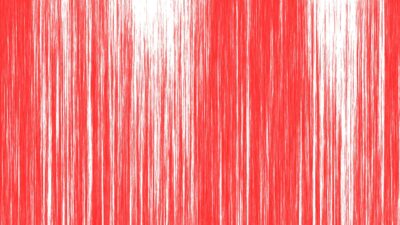
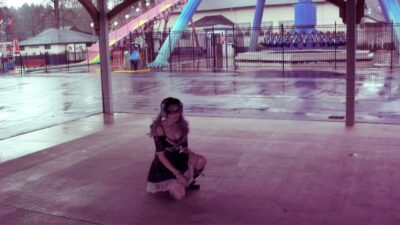
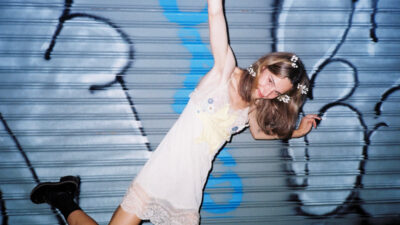
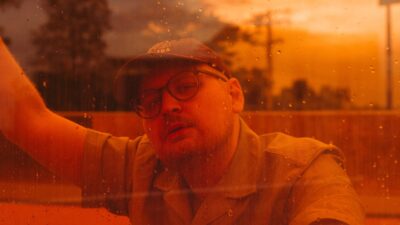
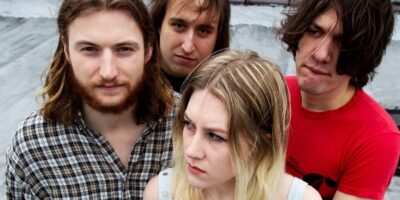
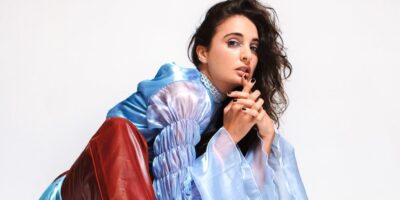
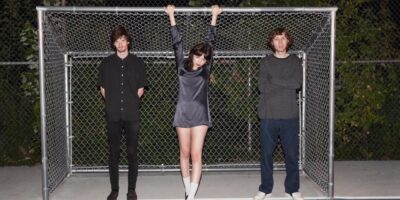
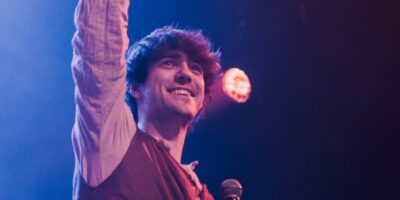
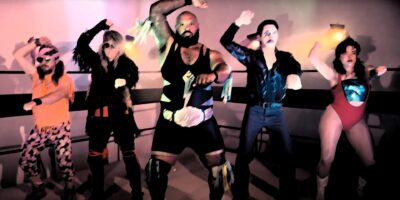
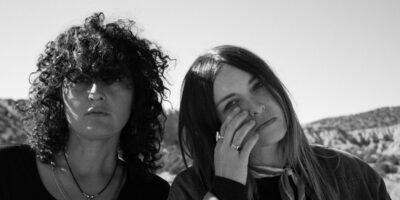




Comments